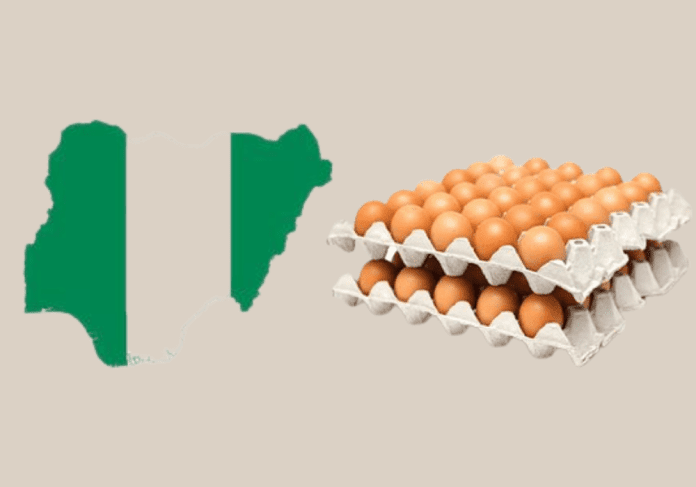News in brief: Nigeria egg glut problem persists as association heads call for the government to mop up excess eggs which are estimated to be about 20 million. The problem could be more serious.
Nigeria has an egg glut with an estimated 15 to 20 million crates of eggs unsold. According to a statement by Chairman of the Poultry Association of Nigeria (PAN), South-West Zone, Oluleye Gideon, the Naira redesign policy caused the problem.
Gideon appealed to government developmental agencies to help mop up the excess eggs and distribute them.
“These products should be used in feeding the people in IDPs and all our correctional centres all over the country. Some could also be used in the government hospitals where meals are served as eggs helps for quick recovery and in building up the immunity of the sick patients.” he said.
The problem in the poultry sector has been in news cycles for over a month now. In March 2023, Mr Godwin Egbebe, National Publicity Secretary of the Poultry Association of Nigeria (PAN), had made similar appeal to the Nigerian government and agencies.
It appears that the federal government is yet to do anything about the problem. Although, a news report showed that some state governments, like Plateau State, already made a move to mop up large quantities of eggs in the region. About 2,000 orphans and school children benefitted from the state’s mop-up exercise.
Are eggs cheaper in Nigeria?
Farmers churned out eggs at their regular rate during the cash crunch but could not sell as fast because of the cash crunch that changed spending behaviour in the country. The next move would be dropping the price, right?
Wrong. Although Egbebe had claimed, in a statement in March 2023, that a crate of egg had dropped from â¦â2,000 to â¦â1,700 at farm gates, the price change has not reflected in retail prices. Nigerians are still buying raw eggs at â¦â100.
The rising cost of logistics in distribution plays a major role in the price of egg remaining the same, and even rising on some occasions, despite the current glut. In addition, feed for the birds are also costing farmers more. Hence, the farmers, middlemen, and retailers pass the cost on to consumers.
The problem with egg glut is deeper than it appears
The problem is multifaceted. First, the direct connection from unsold eggs to post harvest loss and finally financial lose is clear. However, it does not stop there. Large farms, which are suppliers, operate with loans. Being unable to sell their products mean that they are either unable to pay back on time or at all. Hence, giving the agric sector a bad image of being responsible for to many bad loans.
Besides creating a financing problem for the sector in the future, financial loses may discourage more farmers from taking up the activity. Those that do so may want to avoid egg production and focus on something else; maybe crop production. With Nigeria’s reliance on eggs for nutrition, this could cause a supply problem in the future as well.
Although speculations about the collapse of the subsector may be farfetched, bigger cracks may begin to appear.



